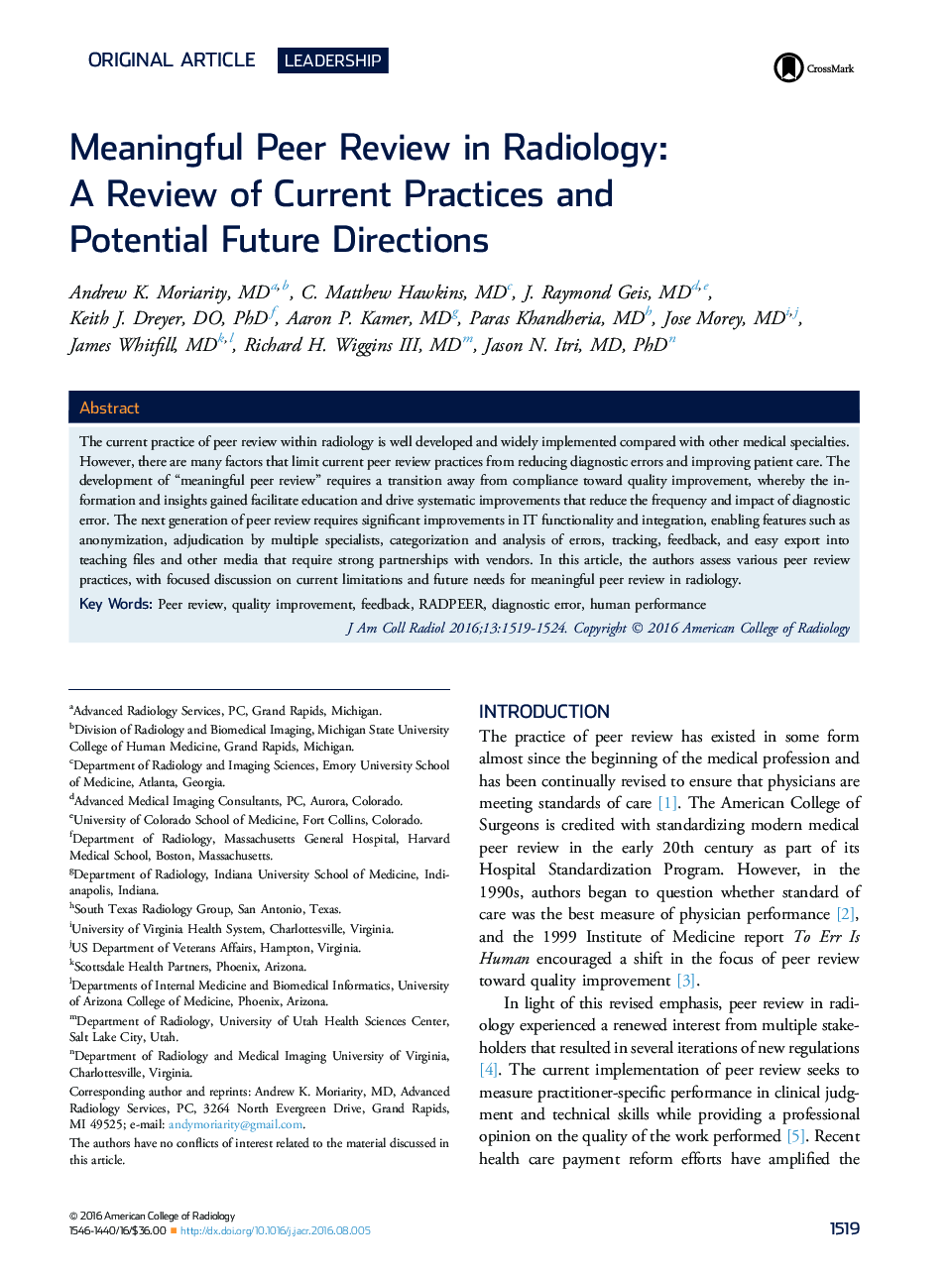| Article ID | Journal | Published Year | Pages | File Type |
|---|---|---|---|---|
| 5726599 | Journal of the American College of Radiology | 2016 | 6 Pages |
The current practice of peer review within radiology is well developed and widely implemented compared with other medical specialties. However, there are many factors that limit current peer review practices from reducing diagnostic errors and improving patient care. The development of “meaningful peer review” requires a transition away from compliance toward quality improvement, whereby the information and insights gained facilitate education and drive systematic improvements that reduce the frequency and impact of diagnostic error. The next generation of peer review requires significant improvements in IT functionality and integration, enabling features such as anonymization, adjudication by multiple specialists, categorization and analysis of errors, tracking, feedback, and easy export into teaching files and other media that require strong partnerships with vendors. In this article, the authors assess various peer review practices, with focused discussion on current limitations and future needs for meaningful peer review in radiology.
